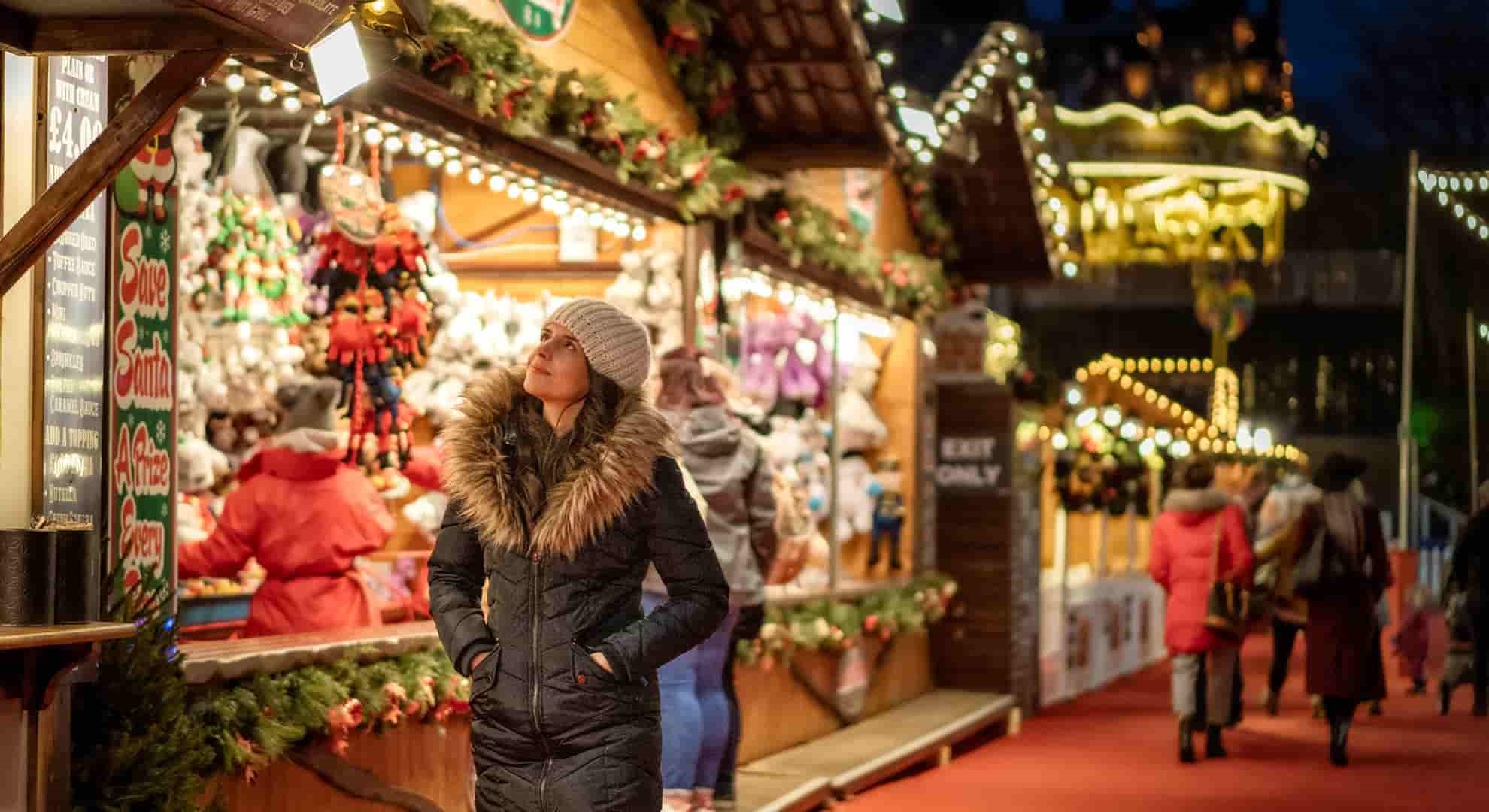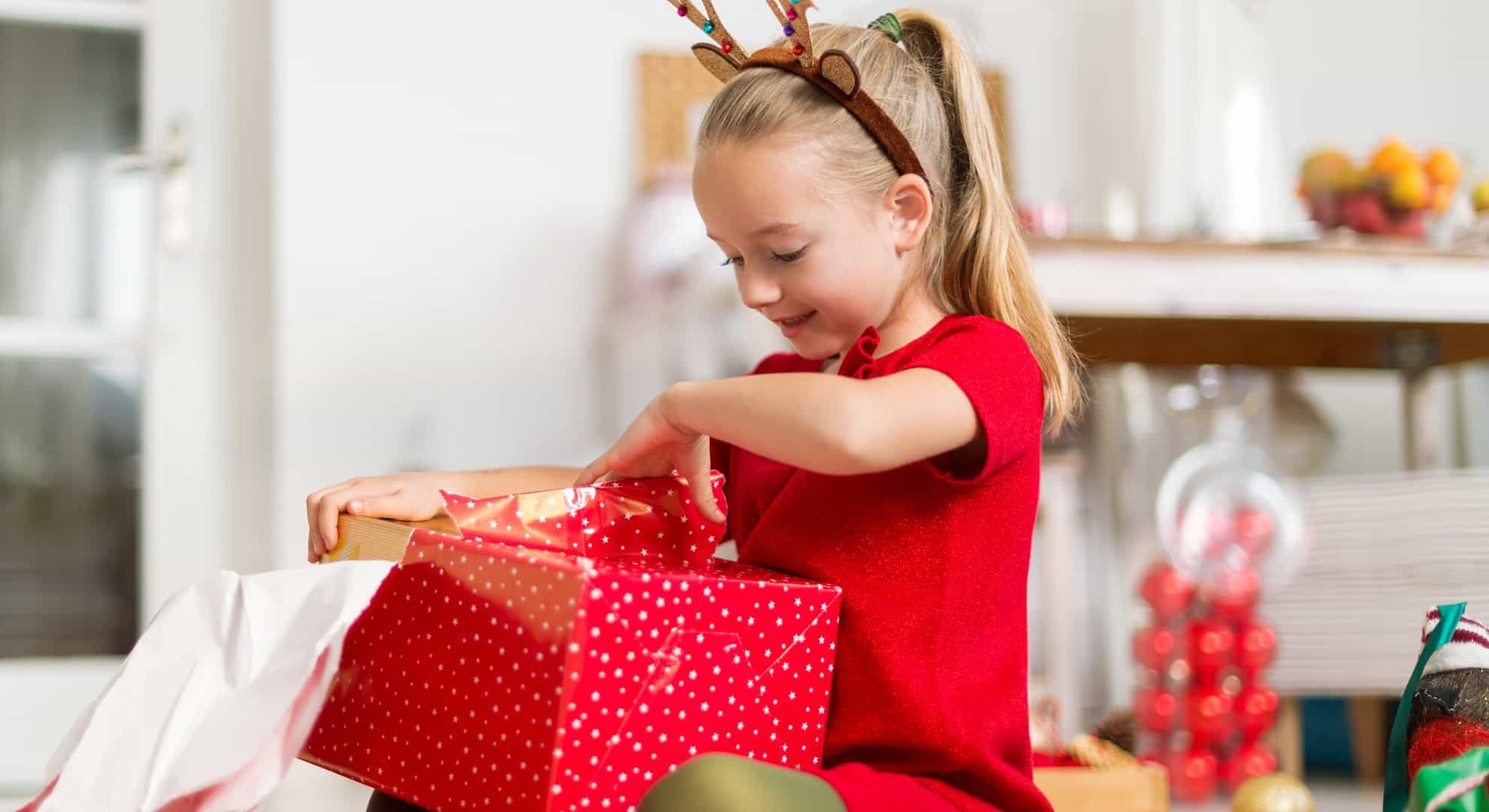
How to have a more sustainable Christmas
Consumption naturally increases at Christmas time, tis the season for giving after all.
But what if we told you that you don’t need to buy new to gift something special?
Check out our top tips on how to make gift-giving a little less wasteful.
Sustainable gift guide
Gift an experience
We found that more than half of parents said that their house was overflowing with toys but it’s easy to forget that spending quality time together making memories is just as important as ‘stuff’.
Instead of buying a physical gift, choose an experience that you can share together – such as a gig, a meal out or a spa day. You could even gift someone a membership or course that gives people the chance to develop a skill or hobby.
For kids, why not try gifting a toy subscription from services such as Whirli or buy pre-loved.
Create a personalised gift
Get creative and give someone a one-of-a-kind gift. Are you a keen cook? Cakes, jams and chutneys can make useful and thoughtful presents, and cut down on food waste.
Create tailor-made wrapping paper using things you already have in your home – wrap your fashionable friend’s gift using an old copy of Vogue, or re-use old comics to wrap kids’ Christmas presents.
Or why not try making your own Christmas cards from recycled paper or send a personalised e-card to cut down on paper waste.
Sustainable Christmas Decorations
Decorating for Christmas is a beloved tradition, but it doesn't have to be wasteful. By making small changes, we can create a sustainable and stunning holiday display.
Are real or fake trees better for the environment?
According to our experts at Zero Waste Scotland, real or ‘natural’ trees are more eco-friendly on a one-off basis, if disposed of responsibly. However, an artificial tree that is well looked after and used year after year can offset its higher carbon footprint.
What you need to know about real Christmas trees
- More than half a million natural Christmas trees are bought in Scotland each year. Trees that are locally grown have less associated carbon emissions, for example from transport.
- Once Christmas is over, dispose of your real tree responsibly. Ideally, plant it. Trees that do well in the garden can be used again next Christmas, when they will be even bigger and better!
- If planting is not an option, compost where possible or dispose of it as garden waste at your local recycling centre. When natural materials such as wood end up in landfill they emit methane, a greenhouse gas, so it’s extra important that trees are recycled.
- Some councils offer a designated Christmas tree uplift – check your local authority’s website for details.
What you need to know about artificial trees
- We’re not suggesting you keep your tree up all year round, but if you have an artificial tree make sure you put it back in the box or bag once Christmas is over and store it somewhere dry and not too hot. An artificial tree is for life – not just for a single Christmas!
- Artificial trees are not recyclable, so if you no longer need them, keep them out of the recycling bin. Instead, donate it to a charity shop if it’s still in good condition.
- Many charities will collect items directly from your home. Search for and contact your local charity shops to see if that’s an option where you live.
Turn off your Christmas lights
Remember to switch off and unplug electrical Christmas decorations to save energy. If you can, opt for solar power outdoor lights where possible.
Make your own Christmas crackers
Much like wrapping paper and cards, if Christmas crackers aren’t too shiny or glittery then they can be pulled apart and the paper and cardboard elements can be recycled. But, if you can, get crafty and make your own using toilet roll tubes and wrapping paper, and include personalised gifts inside.
Reduce food waste this Christmas
Maximise your leftovers
Keep your festive leftovers aside to make some quick and easy recipes. Curries, stews and soups are great meals to make using what you’ve got left in your fridge, and who doesn’t love a classic turkey sandwich with leftover cranberry sauce?
Freezing the food you have left from your Christmas feast could save you cash. You can freeze just about anything, just make sure to freeze within two days – and eat within three months.
Visit Food Standards Scotland for tips on how to cook and store your food safely this Christmas.
Collectively, people living in Scotland could save more than £90 million by not wasting food this festive season. That's a saving of £38 for every household in Scotland.

